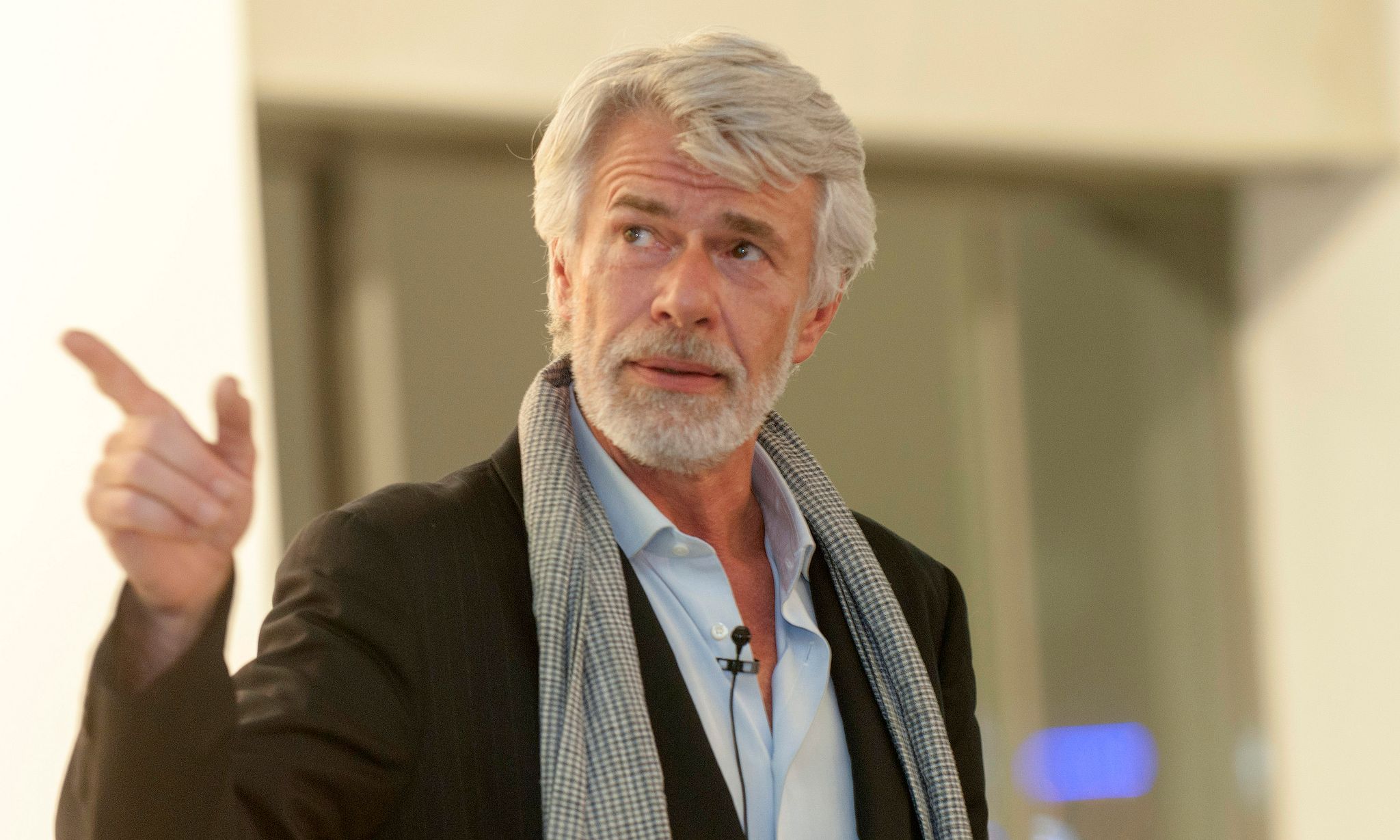Chris Dercon, the managing director of the Fondation Cartier, is among 100 French art world figures who signed the open letter in support of the Palais de Tokyo
More than 100 high-profile French art world figures have signed an open letter supporting the Palais de Tokyo in Paris after Sandra Hegedüs quit the Amis du Palais de Tokyo patrons group, withdrawing her funding after 15 years.
Signatories include Chris Dercon, the managing director of the Fondation Cartier pour l’art contemporain, Emma Lavigne, the director general of the Pinault Collection, and the artist Camille Henrot. Manuel Segade, the director of the Reina Sofía Museum in Madrid, is another signatory. Hegedüs is not named in the letter, which has been published in the French newspaper Le Monde. More than 1,800 people have signed the letter online.
The letter, published on behalf of the French association for the development of contemporary art centres, says: “The Palais de Tokyo, which was already targeted in 2023 over the work Fuck Abstraction by the artist Miriam Cahn, is this time accused by a patron of promoting programming ‘dictated by the defence of wokeism, anti-capitalism, pro-Palestine, etc.’, according to the terms of her letter of resignation from the Friends of the Palais de Tokyo association, which she published on social media networks.
“These words and these methods, using a popular tribunal on social networks… are dangerous for the art world, for artists and for the freedom of institutions, as well as for our democracy.”
In her original Instagram post, which has been liked more than 13,000 times, Brazilian-born Hegedüs said the reason she stood down was “simple; things have changed and I don’t want to be associated with the new, very political direction at the Palais de Tokyo.” Hegedüs singled out a recent show focused on Palestine though did not explicitly state the name of the exhibition, which is thought to be Past Disquiet. The show, which focuses on four “museums in exile” conceived as touring exhibitions, runs until 30 June.
Hegedüs hit back at the letter on Instagram in a series of comments posted today under the heading: “response to the letter of support published in Le Monde”. She said: “I’ve always, via my philanthropic activity, supported artists regardless of their origin, political opinion, sexual orientation etc., prizing especially artistic research.”
She adds: “My withdrawal [of funds] does not threaten the existence [of the Palais de Tokyo] or its programming policies. It’s my legitimate right to pull back from an institution that I no longer recognise… the last straw was the Past Disquiet exhibition that endorses a one-sided narrative on the Israel-Palestine conflict and a romanticisation of violence. It’s no secret that I am Jewish and that I defend the right of Israel to exist (this is the meaning of the word Zionism). In the same way I defend the right of Palestinians to have [their own] state.”
On X (formerly Twitter), Hegedüs says in her bio details that she is a “proud Zionist”; in 2009, she founded the non-profit SAM Art Projects, which has backed a number of projects at the Palais de Tokyo including shows dedicated to Zineb Sedira in 2009 and Henrique Oliveira in 2013. Since 2019 Hegedüs has also been the president of the board of Villa Arson, an art school in Nice.
Sylvain Lizon, the director of Villa Arson, tells The Art Newspaper: “I signed this text [open letter] in support of programming freedom. In these troubled times, it is our duty to protect freedom of expression by all means. Places of art are sanctuaries that must be protected. To remain silent is to renounce and encourage self-censorship, which is for us the greatest threat.”
Dirk Snauwaert, the director of Wiels, Brussels who sits on the SAM prize committee, also signed the letter. He tells The Art Newspaper: “It’s difficult to understand why someone, who has supported the institution for many years, suddenly disagrees with one project and is ready to question and discredit freedom of speech in an Instagram message—in the digisphere of postdemocratic clicks and likes—instead of supporting and defending such spaces of negotiation.”

